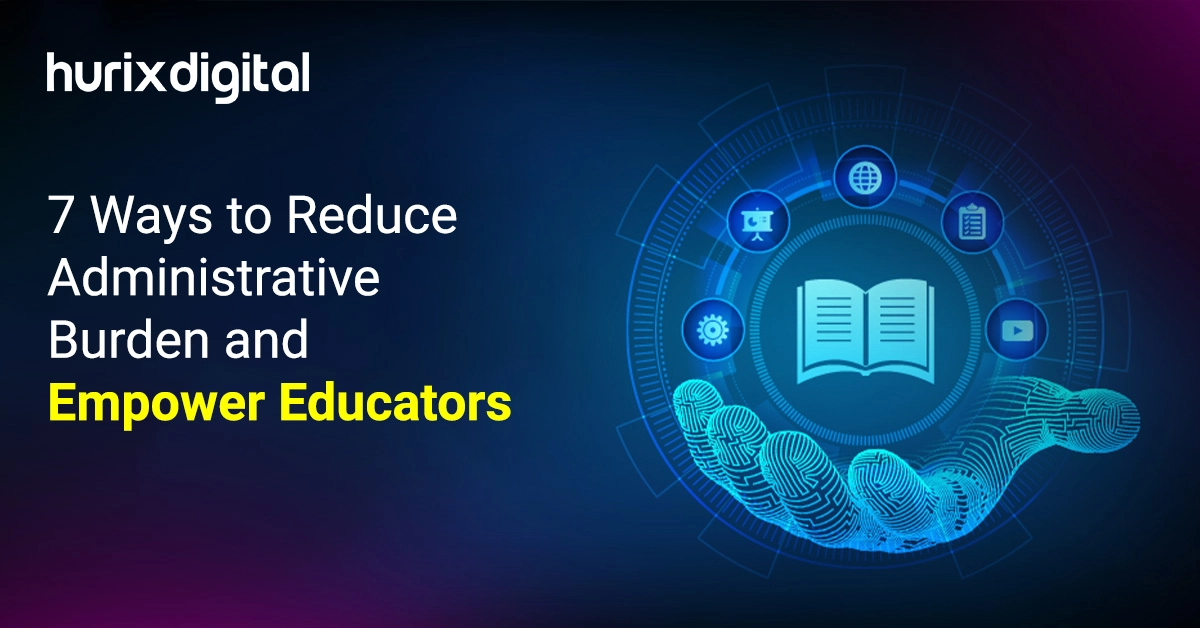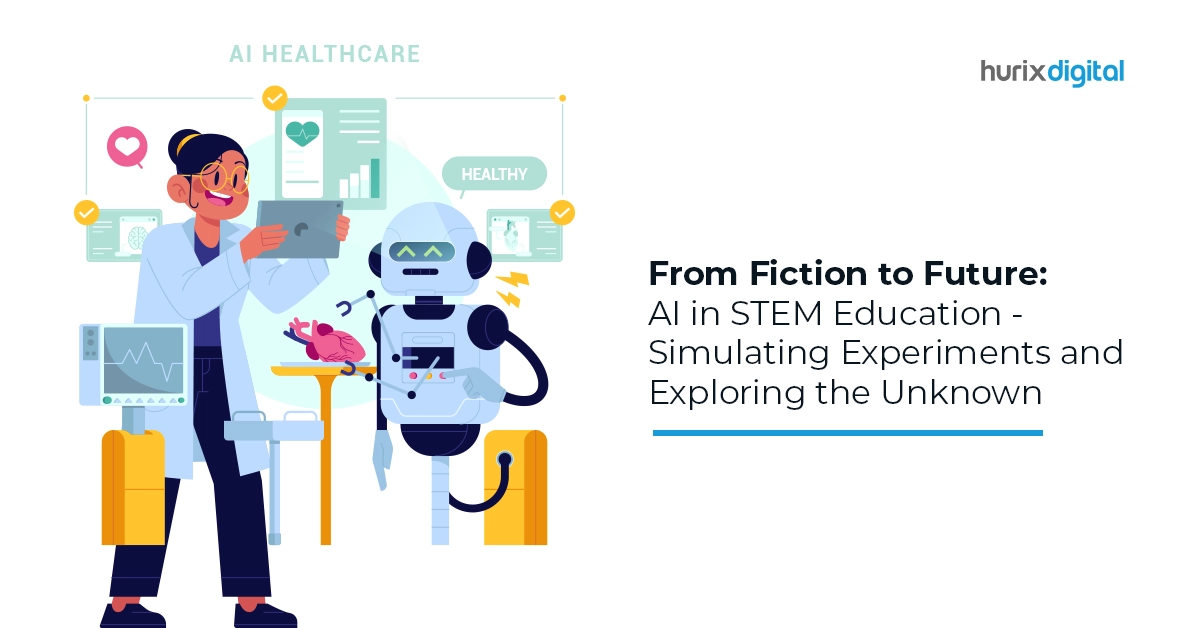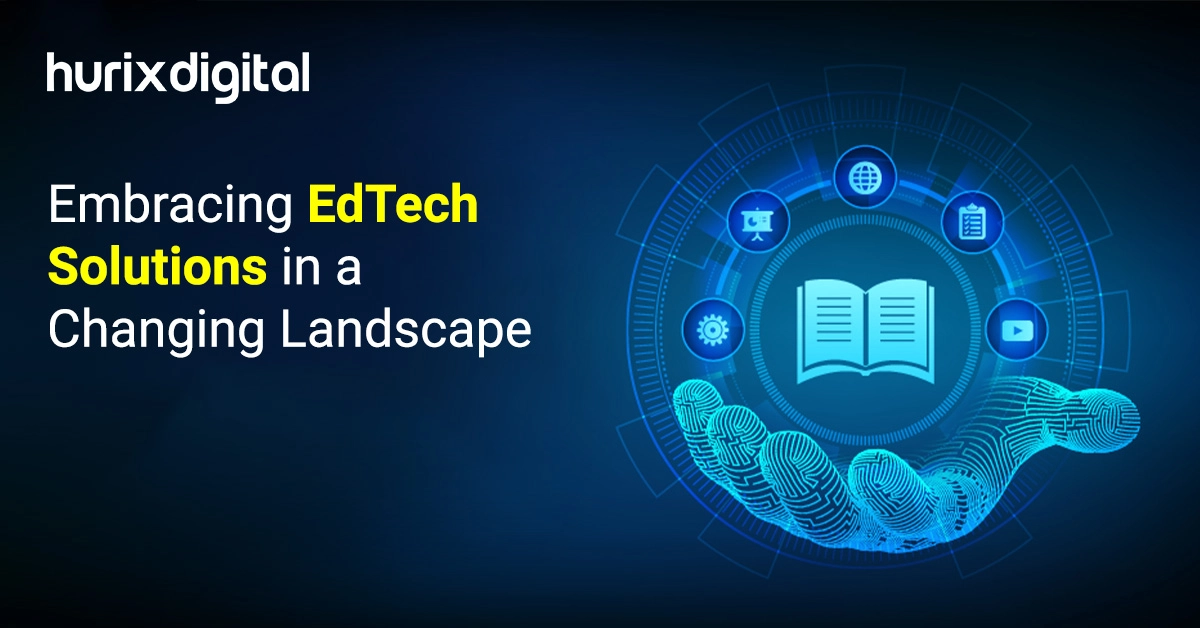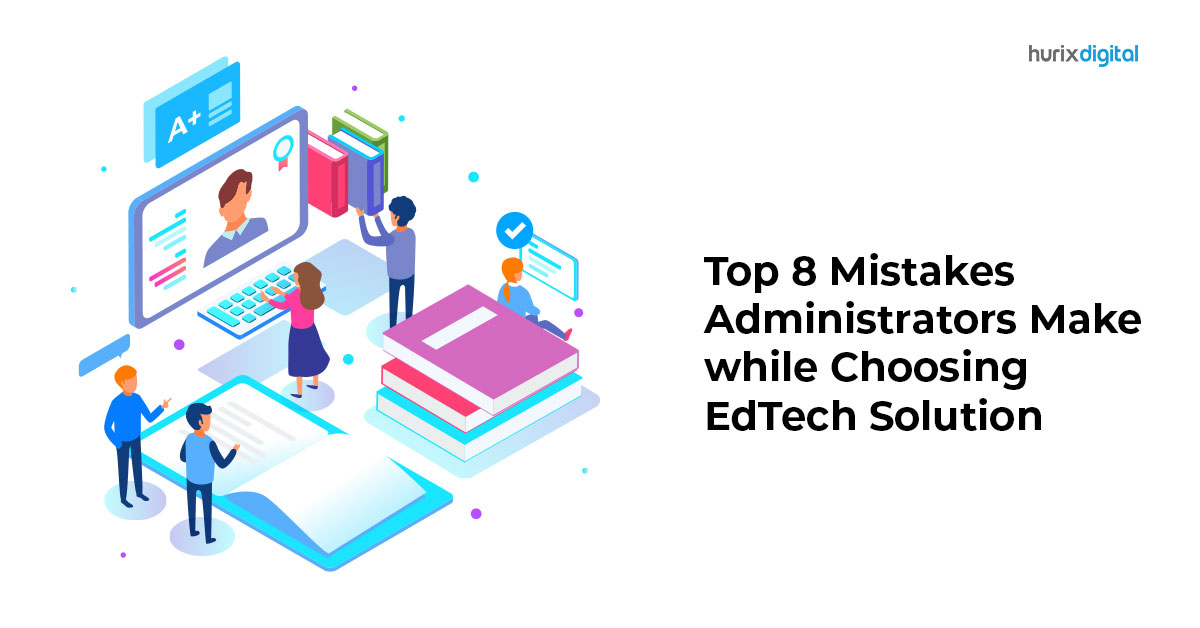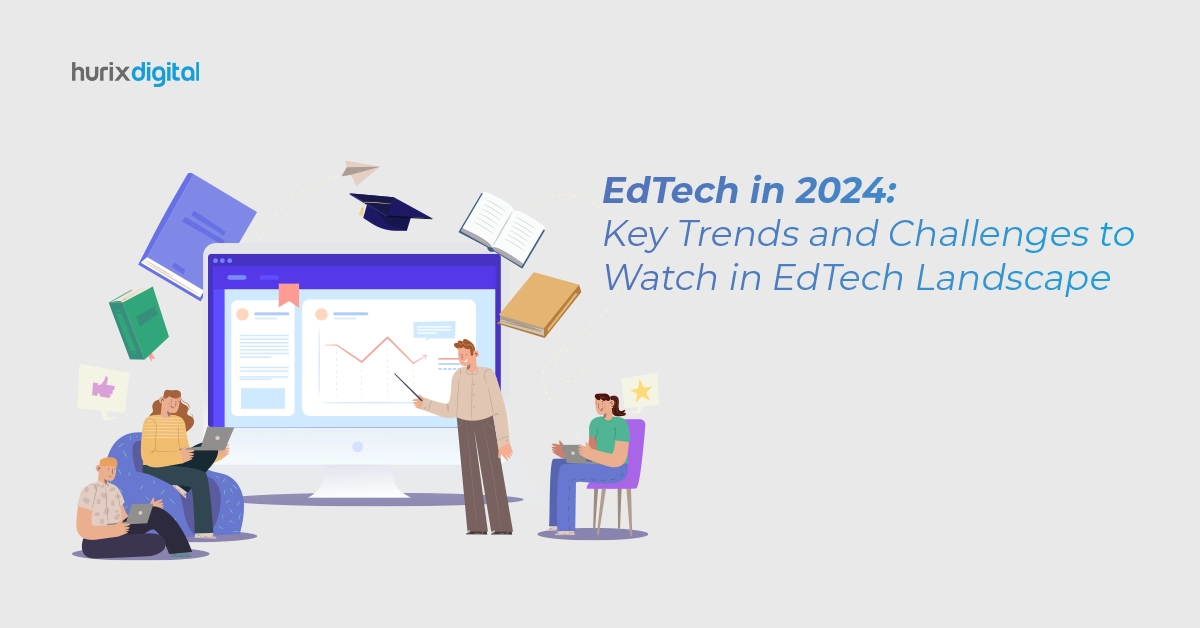
Edtech in 2024: Key Trends and Challenges to Watch in the Education Landscape
Summary
This article provides an overview of the current state of edTech in the education sector. It also highlights the key trends that are set to reshape the education landscape in 2024.
In the last two decades, the term EdTech or educational technology has completely revolutionized the field of education. The modern, dynamic, and creative use of technology in classrooms has not only transformed the method of holistic learning but has also empowered teachers to provide customized learning materials to their students.
One goal of modern technology is to empower each person with their own unique learning experience tailored to both intellectual and physical needs. The education sector is witnessing a seismic shift, propelled by innovative EdTech solutions.
As we stand poised on the precipice of 2024, several emerging edTech trends and challenges promise to reshape the learning landscape, offering exciting advancements while demanding our attention as well.
Table of Contents:
- Trending Tides in Edtech Solutions
- What are the Challenges to Navigate in Edtech Solutions?
- Wrapping Up
Trending Tides in EdTech Solutions
Edtech is a field that never stops moving. From standardization of educational standards and the incorporation of augmented and virtual reality in teaching to artificial intelligence (AI)-driven adaptive learning and smart education tools, there are so many trends that are going to change the education landscape forever.
And with the digital era hotly on the rise, there’s no time like the present to find out what’s in store for the educational landscape in edTech trends 2024:
1. Hyper-Personalization Takes Center Stage
The “one-size-fits-all” model is fading, replaced by a surge in hyper-personalized learning. Imagine AI analyzing student data to understand their learning styles, crafting tailor-made curriculums, promoting gamification in edTech, and offering targeted feedback. This bespoke approach will help students reach their full potential.
A 2023 World Economic Forum report states that AI-powered personalization will be essential in the future classroom by providing open access resources and collaborative spaces today.
Teachers have long tried to personalize lessons for students, but now they can do so on an individual level with new tools like adaptive learning platforms with machine learning algorithms. These platforms use data collected from multiple sources — including grades, attendance records, assessment results, teacher feedback, and more — to create customized learning experiences for each student.
Hyper-personalization is also happening outside of the classroom: Students are becoming more involved in their learning through ebooks, podcasts, and other resources available online.
2. Immersive Learning Revolution
AR and VR are no longer science fiction; they’re transforming education. Research from Educause predicts that the AR/VR market in education will reach $14.2 billion by 2028.
The recent advancements in computing power and graphics processing have allowed for higher fidelity experiences than ever before – making augmented reality and virtual reality in edTech, a serious contender for future education platforms.
Imagine dissecting a virtual frog in biology class, exploring ancient Rome via VR, or collaborating with students across the globe in shared virtual spaces. These immersive experiences and edTech innovations will boost engagement, deepen understanding, and break down geographical barriers, making learning truly global.
Also Read: The Most Viral EdTech Trends to Watch Out for in 2024!
3. Microlearning Takes the Spotlight
Traditional hour-long lectures are struggling against shrinking attention spans. Here is where microlearning reigns, with its focus on bite-sized, focused learning modules.
Microlearning is an evolution of video-based learning, which means it includes graphics, text, voiceover narration, and more interactive elements like quizzes or polls. The idea is that shorter videos allow learners to digest information more quickly than longer ones do.
It has been known to improve student retention rates in the range of 70-90 percent, unlike traditional teaching models, which only help in 15% of the cases.
Consider the impact of engaging video lessons, interactive quizzes, and gamified activities that cater to dwindling attention spans. This approach, ideal for skills development and lifelong learning, makes knowledge accessible in our fast-paced world.
4. Prioritization of Skill-Based Learning
With the job market rapidly evolving, traditional degrees are no longer the sole guarantee. The stark reality is that 85 million jobs could be replaced by automation by 2030.
In response, expect a surge in skill-based learning platforms that equip students with in-demand skills like data science, digital marketing, cybersecurity, and artificial intelligence in edTech. These platforms, offering practical courses, boot camps, and certifications, ensure graduates are job-ready and equipped to thrive in the ever-changing landscape.
The goal is to equip students with skills that can be applied outside of school — whether they’re pursuing careers in STEM fields or going on vacation with their friends and family. In other words, it’s about equipping young people with transferable competencies that will serve them well no matter where life takes them next.
What are the Challenges to Navigate in Edtech Solutions?
Though ed tech in K-12 is becoming more and more inclusive in classroom learning, there are many new challenges facing the educators and school leaders of 2024.
Here, we explore the implications of the key trends of the future — the trends that will shape the landscape of education technology — and suggest some ways to tackle the challenges in EdTech:
1. Bridging the Digital Divide
While EdTech presents incredible opportunities, the issue of digital inequality remains a significant challenge. Not everyone has access to reliable internet connections, devices, or technical skills. In 2024, addressing this divide is crucial.
It can involve initiatives like providing affordable devices, expanding internet access in underserved communities, and offering training programs to bridge the digital skills gap. Equitable access to EdTech tools is essential for ensuring that the benefits of this revolution reach all learners, regardless of their background.
2. Data Privacy and Security Concerns
As more student data is collected and stored online, data privacy and security become paramount. In 2024, you can expect to see a heightened focus on developing robust data security measures and clear data privacy policies to ensure that student information is protected.
Additionally, fostering digital literacy and educating students about online safety will be crucial for navigating the digital learning landscape responsibly.
3. Teacher Training and Reskilling
EdTech is a powerful tool, but it cannot replace the role of skilled and dedicated teachers. In 2024, teacher training and reskilling initiatives will be essential to ensure that educators are equipped to integrate technology into their teaching practices effectively.
It involves training on using EdTech platforms, developing technology-enhanced lessons, and adapting their teaching styles to accommodate the changing learning environment.
4. Ethical Dilemma of AI
While AI-powered tools offer incredible potential for personalization and assessment, their use also raises ethical concerns.
In 2024, discussions on biases in algorithms, the potential for over-reliance on technology, and the importance of human-centered design will be crucial. Ensuring ethical and responsible development and use of AI in education will be key to maximizing its benefits while mitigating potential harm.
Also Read: Top 10 AI Trends Reshaping the World of Education in 2024
Wrapping Up
Imagine a world where AI understands your strengths and weaknesses, tailors your learning path, and provides targeted support every step of the way. With Hurix Digital, this world is not just a distant dream, it’s the reality for learners and educators today.
We are your AI-powered learning partner, committed to empowering educators and learners alike. Our cutting-edge AI platform doesn’t just offer on-demand tools; it reveals the wonders of personalized learning, customized feedback, and continuous growth.
Connect us today and discover how we can help you thrive in the EdTech revolution!

Senior Vice President – Business Development
Over 25 years of experience in the edtech and workforce learning industry with strong skills in Business Development, Customer Relationship Management (CRM) and Strategy.
